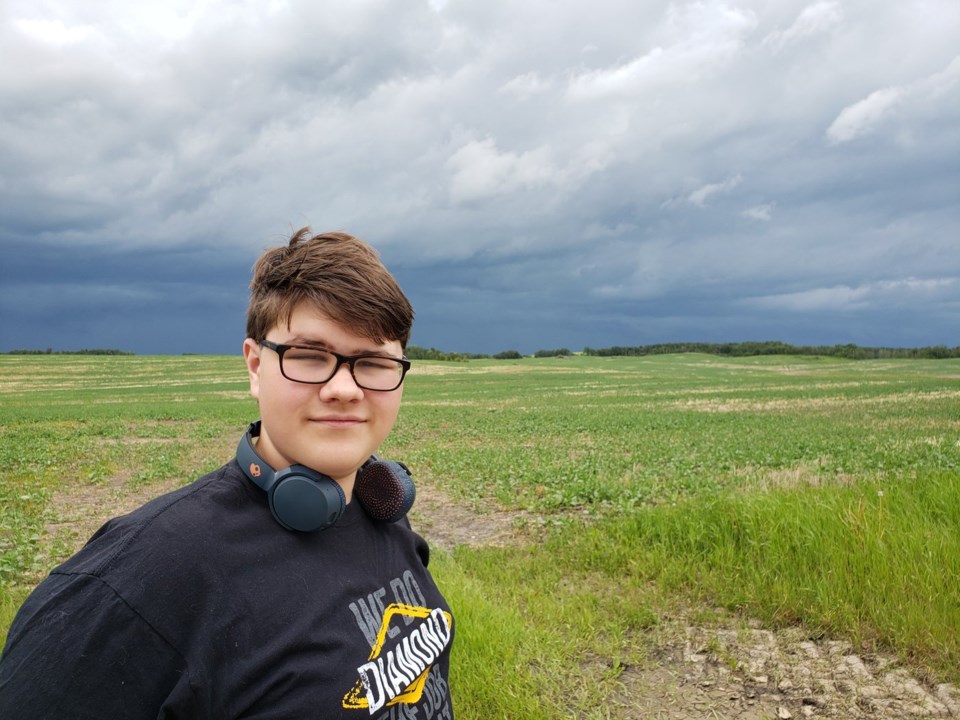As a kid who can’t decide on his favourite computer language — Java, Python or Arduino — Luke Silinski doesn’t fit the stereotype of a rural-based farm kid.
Then again, Silinski thinks farm kids don’t really get a fair shake, as far as stereotypes go; long gone are the days of cover-alls and pitch-forks, and now is the time for frequent tech usage out in the fields, he says.
That’s why the Alberta-based high school student is using his new company and software to give farm kids a fair shake for learning what he thinks is an essential skill — using computer code to write programs.
Dubbed Ag Tech STEAM, the program is getting financial support from several backers so Silinski and his mom, Shannon, can ensure kids like Luke will download its content packs for free.
Among the backers is Farm Credit Canada (FCC), whose head office is in Regina, along with Olds College and Lethbridge College, among others.
“The main goal is to increase the amount of people who have experience in agriculture and experience in the field of computer science and technology, because there's really not a lot of overlap in those two fields,” Silinski, 14, said.
Highlighting his multidisciplinary approach is the acronym in the program’s name: STEAM stands for science, technology, engineering, art and math. He figures all five areas are applicable to agriculture, plus they expose learners to a wide range of ideas.
Silinski says accessibility is important, too: He lives near the village of Carbon, about 110 kilometres northeast of Calgary.
“Power outages are kind of an issue. The Internet out here (isn’t always) the best, which is why there's offline stuff with Ag Tech STEAM: Not everyone has Internet that can go as fast as a jet plane,” he said.
There’s also the issue of proximity to a major urban centre where kids can attend tech-based day camps, he says. That was his experience a couple of summers ago.
For a whole week, he and his mom got up everyday at 5 a.m., drove through Calgary to the day camp and returned home each evening.
“After that, I was tired, I was beat. I’m like, 'what could be the solution to this?' It's not money-friendly ... your parents also have work to do over the summer, and then there's the fact of parking (a big farm truck in a congested city),” he said.
He found the fix — his newly minted program and company — in early 2019 at the University of Saskatchewan while attending a two-day innovation hackathon, a collaboration event intended to find tech solutions for the agriculture sector.
The program is now in its early stages, with its website just up and running.
Silinski expects to have the first content pack, which focuses on entomology, ready for download later this summer. He’s also planning to finish 49 more content packs, thinking there’ll be plenty of practical applications.
“Maybe (kids) can help their parents or grandparents calculate the economics of their fields, after a storm or a disease come through,” he said.




